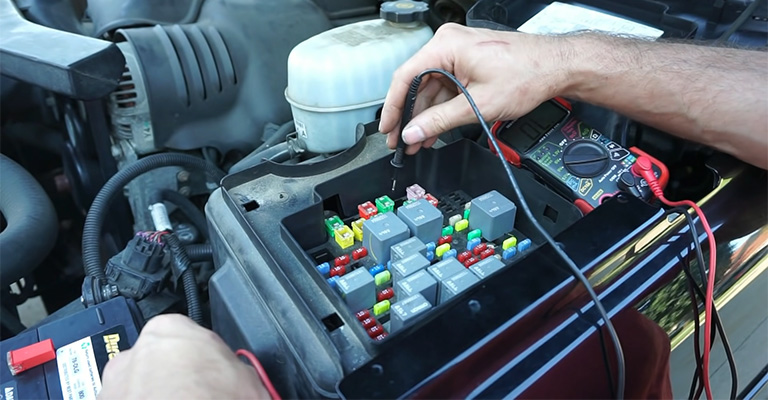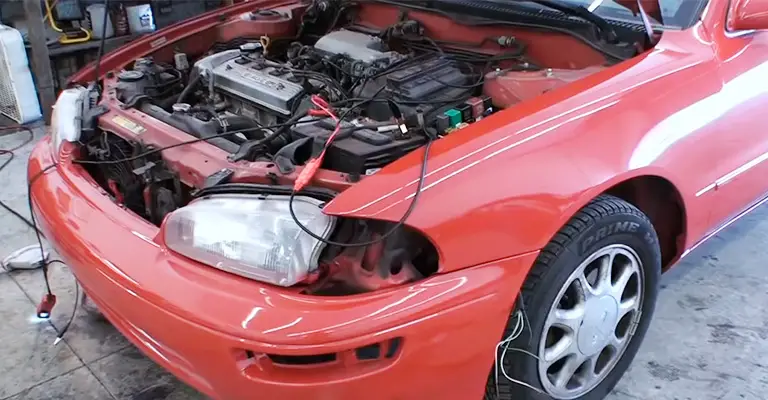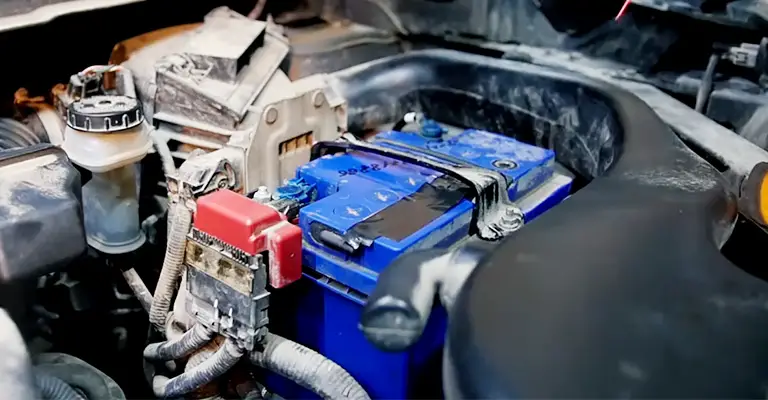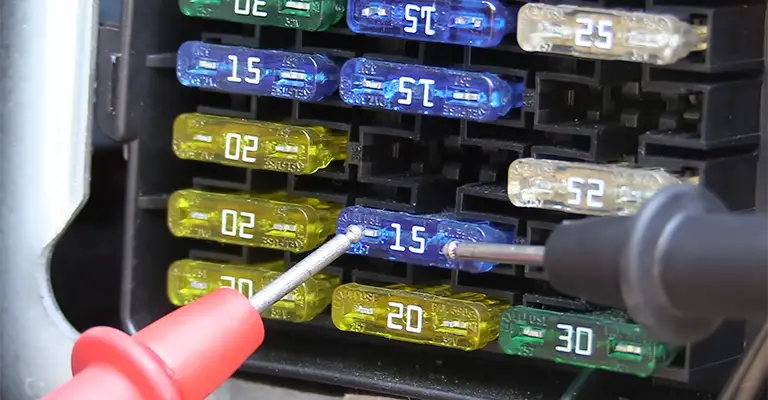It is pretty unlikely that a damaged fuse will drain your car battery. As seen in the past, the case might be a term called a parasitic drain, often caused by a malfunctioning fuse.
For example, a burnt fuse in the car may cause a switch to get stuck in the on position, drawing power from the battery. That, in turn, can be the culprit behind the unusual battery drain. Other than that, there isn’t a direct correlation between a damaged fuse and a drained car battery.

Can a Bad Fuse Drain a Car Battery
There’s this metal ribbon inside the fuse, through which all the current passes. But excessive current flow through the fuse can melt the ribbon, resulting in an open circuit.
Usually, a burnt fuse causes a minor electrical problem in the vehicle. For example, it can either stop the headlight or not be able to turn on the radio. Besides, the turn-on signal and some climate control features may not also function when the fuse gets blown.
Regardless, a burnt fuse can impede the car from starting once in a while. That said, a damaged fuse never drains a car battery. If you find the battery drained way too often, you might be dealing with some other internal issues. And so, a visit to the nearby repair store may come in handy.
Car Battery Draining Causes
There are numerous potential solutions to the issue of a dwindling car battery. Unfortunately, no clear explanation can be determined without further investigation. So, listed below are several potential causes for your car’s battery to discharge even when it is idling.
Electrification Errors

A short circuit can occur sometimes if the electrical wiring is not done precisely. The short circuit thus consumes more energy than it should. As a result, the problem with the automobile battery emptying is caused by this additional draining.
You must locate the wiring issue if you want to solve this problem. The issue with your car’s battery depleting will then be resolved by changing the wiring.
The issue with the Charging System
When a car is operating, the alternator balances and charges the battery. The battery should receive 13.5 to 14.5 volts while charging correctly. But if the battery doesn’t get the voltage it requires for any reason, it might eventually run out of juice.
High Temperatures

The battery might suffer from high temperatures. The battery may develop lead sulfate if it is exposed to severe cold or heat for an extended period of time. As a result, the battery is harmed, which causes the problem with the battery draining.
Can Burnt Fuse Prevent Car from Starting
The purpose of using car fuses in the first place is to safeguard the electrical wiring in your car. Not every other damaged fuse is responsible for preventing the vehicle from starting. But when the alternator fuse gets burnt, you will have a hard time starting the car.
Generally, an alternator charges the battery and supplies the rest of the car with electricity. And electricity needs to reach the starter relay, which is required to provide the spark, the ignition, and the power to move your vehicle.
But a damaged alternator fuse prevents the charging system from working flawlessly. Therefore, the battery can no longer store enough power to start the car.

Frequently Asked Questions
Why is my battery dying so fast?
A damaged alternator that fails to charge properly may be responsible for fast battery drain. Besides, if the battery somehow turns out to be weak, it can also cause a draining problem.
Can an electrical problem drain your car battery?
A car battery usually delivers enough electricity flow to keep things running. But when an electrical problem arises, the parasitic drain becomes excessive and drains the battery. So, the answer is yes. An electrical problem inside the car can cause the issue at hand.
Conclusion
Generally, a damaged fuse cannot cause battery drain issues. A burnt fuse causes little electrical problems, which leads to a parasitic drain. Yet a weak battery can make it seem that the battery got fully drained. Hence, it is not always the damaged fuse to blame.
Leave a Reply